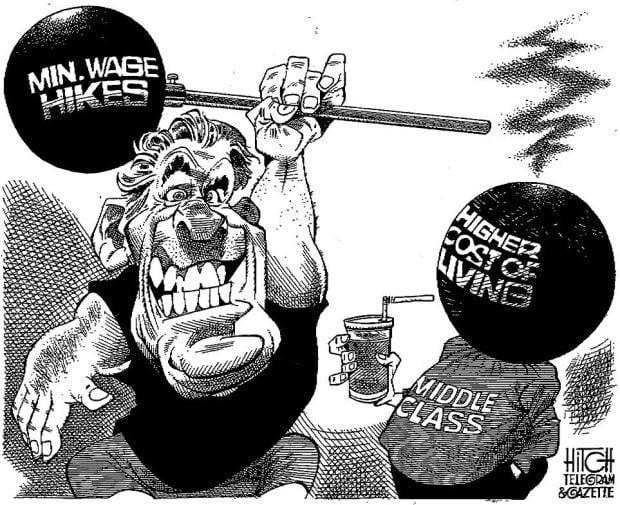
Feel-good policies, though
economically harmful in themselves, could be justified if they avoid the
harmful policy impacts of income envy.
When President Bush suggested that CEO pay has too little to do with performance, he may have recalled the late Milton Friedman’s statement
in 2005: “There’s no doubt that in recent years the upper end of the
income scale has enjoyed a much larger increase in income and wealth
than the lower end.”Indeed, 2006 set new records for IPOs, mergers and acquisitions, and asset sales; top-earning risk managers, commodity traders, Goldman Sachs, and JP Morgan never did better. Do skyrocketing high-end salaries for CEOs and fund managers put America’s social cohesion at risk? Do astronomical payouts (John Mack’s $40 million bonus, $600,000 average incomes for JP Morgan’s Atlanta office) signal a dangerous divide between the rich and the rest?
Some call it market failure, others genuine demand for rare, exceptional leadership skills. Most likely it’s a little of each. With moral beliefs in play, disagreements are sharp. Morality aside, the issue of executive pay and growing income disparities has become politically messy.
The question is whether public policy creates enough of a level playing field to secure social harmony. When it doesn’t, populism gains ground and protectionism, even isolationism, is a serious risk.A proverb (misattributed to Churchill) goes: “Never trust a statistic that you didn’t falsify yourself.” Ideology can taint income data, but trends are apparent. The Congressional Budget Office finds the income gap between the top 1 percent of earners and middle-income Americans has increased about 16 percent since the 1980s. The marginal tax rate cuts of the 80s were designed to spur income-generation at the top, and the gap did widen during the 80s, too. Aggregate middle class incomes rise much slower than upper class income.
Americans believe in hard work leading to wealth (most think they could reach that top one percentile), but startling income disparities can undermine free and open markets as the path of opportunity. In post-industrial America, CEOs moving money and information, not building up an industrial empire, may get less of a pass than, say, Henry Ford did. But the Fords and Rockefellers were targets of class envy, too. The question is whether public policy creates enough of a level playing field to secure social harmony. When it doesn’t, populism gains ground and protectionism, even isolationism, is a serious risk. Counter-productive wealth-redistribution schemes are not far behind. In this political environment, a visible (quasi-populist and at worst mildly counterproductive) minimum wage hike may actually be a less-bad route to easing social tensions.
If, that is, a higher minimum wage—especially one with small-business tax incentives, now the subject of a congressional bidding war—heads off bad ideas like blocking foreign investment or setting CEO pay in Washington. A safety valve that releases enough pressure so politicians don’t really mess with the markets is a fair trade-off.
We can’t know if the minimum wage hike is the first of many populist acts, or a lightning rod to avert others. The risk of finding out is worth it. Free-market capitalism can actually undermine itself, if its formidable efficiencies exacerbate economic inequalities to the crucial ‘tipping point.’ In a (small-r) republican society like the U.S. there’s no fear of Marxist resurgence, but there are legitimate concerns for wrong-headed populist adjustments that undermine our common prosperity: closed-off markets, escalating tax rates, or government-driven industrial policies.
Raising base wage rates may be a small price for heading off such economic folly, if coupled with an ironclad determination to build congressional majorities in defense of (indeed advancing) the pro-market policies that have brought us ever-greater wealth for the past quarter-century. Properly done, this doesn’t mean losing social peace from sight, it means protecting the means to attain it in the first place.
No comments:
Post a Comment